Panoramic Photo Above:
Wrigley Field, Chicago

Baseball History Comes Alive Now Ranked As a Top Five Website by Feedspot Among All Baseball History Websites and Blogs!
(Check out Feedspot's list of the Top 35 Baseball History websites and blogs)
Guest Submissions from Our Readers Always Welcome! Click for details
Scroll Down to Read Today’s Essay
Subscribe to Baseball History Comes Alive for automatic updates.
As a Free Bonus, you’ll get access to my Special Report: Gary’s Handy Dandy World Series Reference Guide!
Sprotwrtiers play a major role in our enjoyment of the sport we all love. Often the contributions of even the great ones do not receive recognition due them. Today, Vince Jankoski turns our attention to one of the most legendary sportswriters of all time with an unlikely first name: Shirley Povich. Over his long career as an “ink-stained wretch,” which began in 1923 and spanned the decades until his death in 1998 at the age of 92, Popich had seen and written about the many changes in baseball, some of which are covered here in Vince’s essay. Most notably, he called for integration long before Jackie Robinson broke the color barrier. As a side note, he was the father of well-known TV personality, Maury Povich. I think you’ll enjoy Vince’s essay about a man who saw it all over his long life. -GL
Legendary Sportswriter, Shirley Povich
“The million-to-one shot came in. Hell froze over. A month of Sundays hit the calendar. Don Larsen pitched a no-hit no-run no-man reach first base in a World Series.” -Shirley Povich
When lists of great sportswriters are assembled, certain names always appear: Grantland Rice, Red Smith, Arthur Daley, Dan Daniel, Roger Kahn, Heywood Bruin, and Dick Young. All too frequently absent from such lists is the author of the above-noted quote, Shirley Povich.
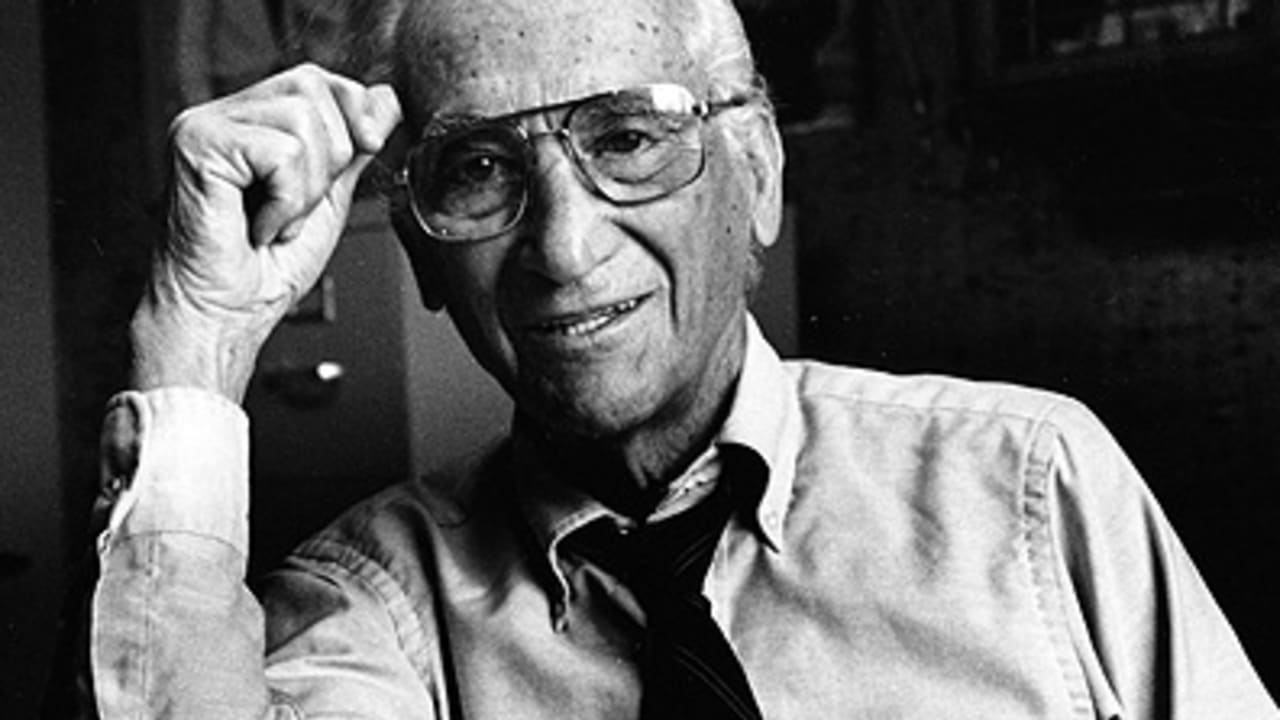
Baseball’s forgotten stars sometimes receive their due eventually, but forgotten sportswriters not so much. Shirley Povich was a truly great sportswriter who has been largely overlooked. Consider the following.
Shirley Povich’s first sports column – an article about the Washington Senators drive to the American League pennant – appeared in the Washington Post on August 5, 1924. He was 19 years old at the time. His last byline appeared in the Post on June 5, 1998, the day after he died at age 92. He wrote the article after an “enforced sabbatical, called for by the reward of better health.” In that piece, he disputed the opinion of his Washington Post colleague Tom Boswell, a great sportswriter in his own right, that Mark McGwire was favorably comparable to Babe Ruth. Povich also gave reluctant kudos to David Wells for throwing a perfect game against Minnesota. Wells’ feat was not nearly as impressive to Povich as was Don Larson’s gem which, after all, occurred during the World Series and was pitched against the hard-hitting Brooklyn Dodgers as opposed to the weak-hitting 1998 Twins.
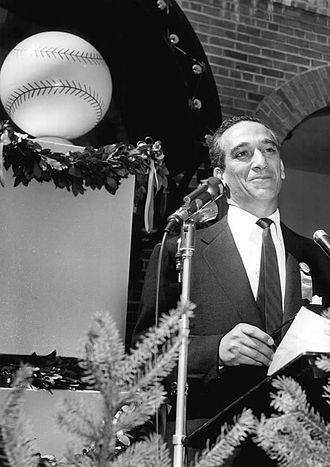
Do the math – 74 years writing sports, give or take a month or two. Actually, it is 73 years because Povich took a year away from sports writing to do a stint as a Post war correspondent during World War II, covering the battles of Iwo Jima and Okinawa. Nearly three-quarters of a century. Nobody beats that. Talk about records that will never be broken. Additionally, he wrote five hundred articles after his supposed retirement in the 1970’s.
The man covered Babe Ruth and Barry Bonds, Walter Johnson and Greg Maddux, Ty Cobb and Lou Brock, Lou Gehrig and Cal Ripken, Jr., John McGraw and Earl Weaver, and everyone in between. When his career commenced baseball was played in the sunlight. There was no designated hitter. The original Yankee Stadium was a year old. There were eight teams in each league, representing ten cities, none west of St. Louis and all within the territorial limits of the United States. Teams traveled by train. The reserve clause dominated employer/employee relations. The farm system was a gleam in Branch Rickey’s eye. Games were just beginning to be broadcast via radio. Television was limited to science fiction movies which, by the way, were all silent. Nearly every player was American-born. All of the stadiums but two then in existence are gone now. The major league record for saves in a season was thirteen, soon to be surpassed by Povich’s hometown Firpo Marberry with fifteen. When he wrote his last column, the record for saves in a season was Bobby Thigpen’s 57, most of which occurred during night games, many of which happened in cities unknown to major league baseball when Povich was getting started, and all were televised. Shirley Povich saw changes in the game and wrote about most of them.
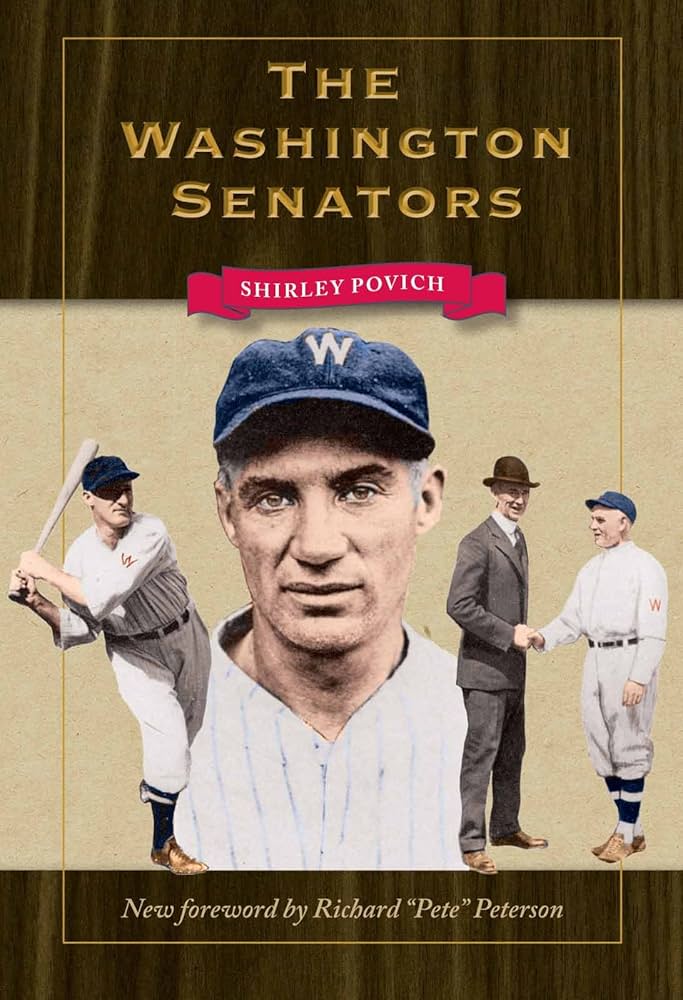
Povich opposed racism in baseball. He wrote of Jackie Robinson, “Four hundred and fifty years after Columbus eagerly discovered America, major league baseball reluctantly discovered the American Negro.” He also railed against the local football team’s refusal to sign African-American players: “the Redskins took the field in their traditional colors — burgundy, gold and Caucasian.” He is reported to have observed that “Jim Brown, born ineligible to play for the Washington Redskins, integrated the Redskin end zone three times yesterday.” Actually, Brown never scored three touchdowns in a game against Washington during the Redskins’ segregation era. Bobby Mitchell, later a player and executive with Washington, did. Perhaps Povich was confusing Mitchell and Brown or maybe Povich is being misquoted. If it is the former, one mistake in 74 years is acceptable.
Povich covered other sports as well: football, boxing, golf, the Olympics, tennis, and even horse racing. But not basketball: “They don’t shoot baskets anymore, they stuff them, like taxidermists.” It was, however, at baseball which he excelled.

It is fitting that Povich’s love was the summer game in the nation’s capital. Prior to the advent of air conditioning (and even afterward), the oppressive Washington summers led anyone who had the financial resources to do so to flee town for places like Bar Harbor, Maine, where young Shirley lived and worked as a caddie. One of his customers was Ned McLean, owner of the Washington Post and the supposedly cursed Hope Diamond. McLean took a liking to young Povich. He paid for Povich’s education at Georgetown Law School and hired him to work at the paper. The rest is, as they say, history. Povich’s articles are worth reading even today.
Vince Jankoski
We’d love to hear what you think about this or any other related baseball history topic…please leave comments below.
Subscribe to Baseball History Comes Alive to receive email updates. FREE BONUS for subscribing: Gary’s Handy Dandy World Series Reference Guide. The site has over 1500 fully categorized baseball essays and photo galleries, now surpassing the one million hits mark with over 1,234,000 hits
(Please note: If you were previously a subscriber to the website, you may have to resubscribe due to recent technical issues)
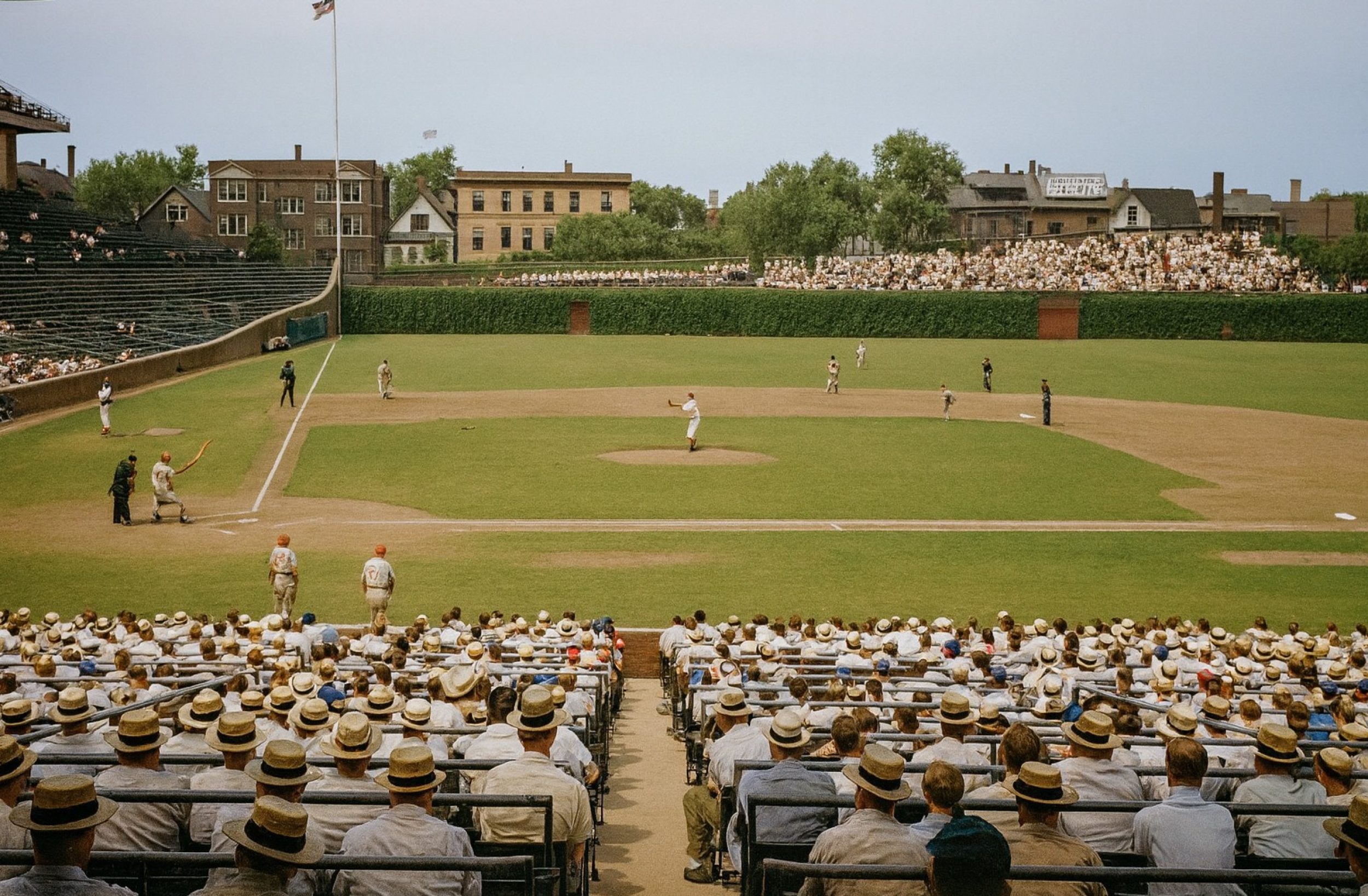
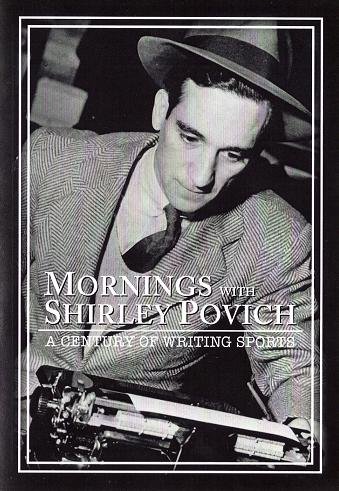

For many years 1955-1965 I would visit relatives in Washington, D.C. and the first thing I would read was Povich’s column in the Washington Post. He could turn a phrase with the best of them and always had an interesting twist to his tales. Thanks for bringing back a little bit of my childhood.